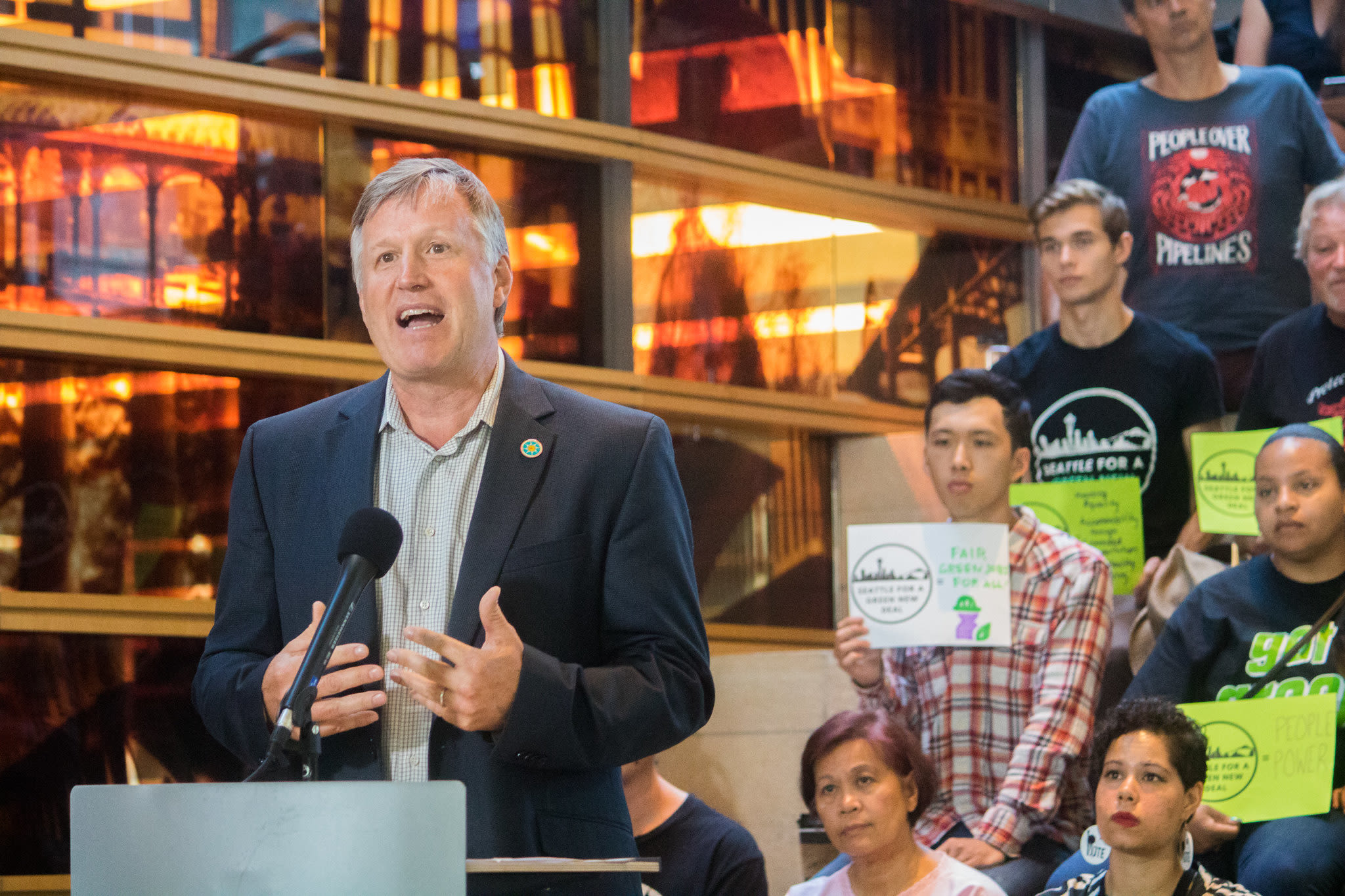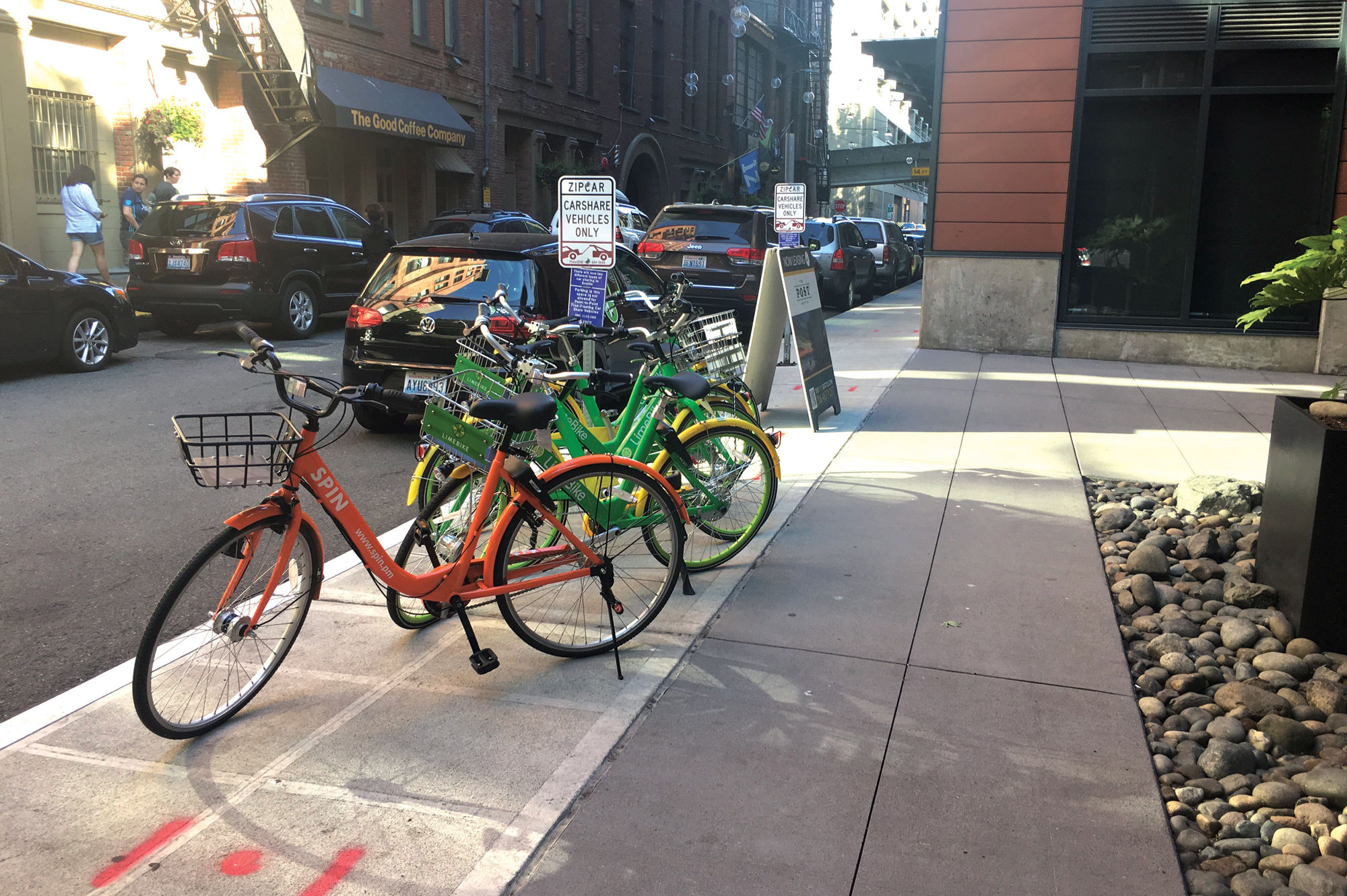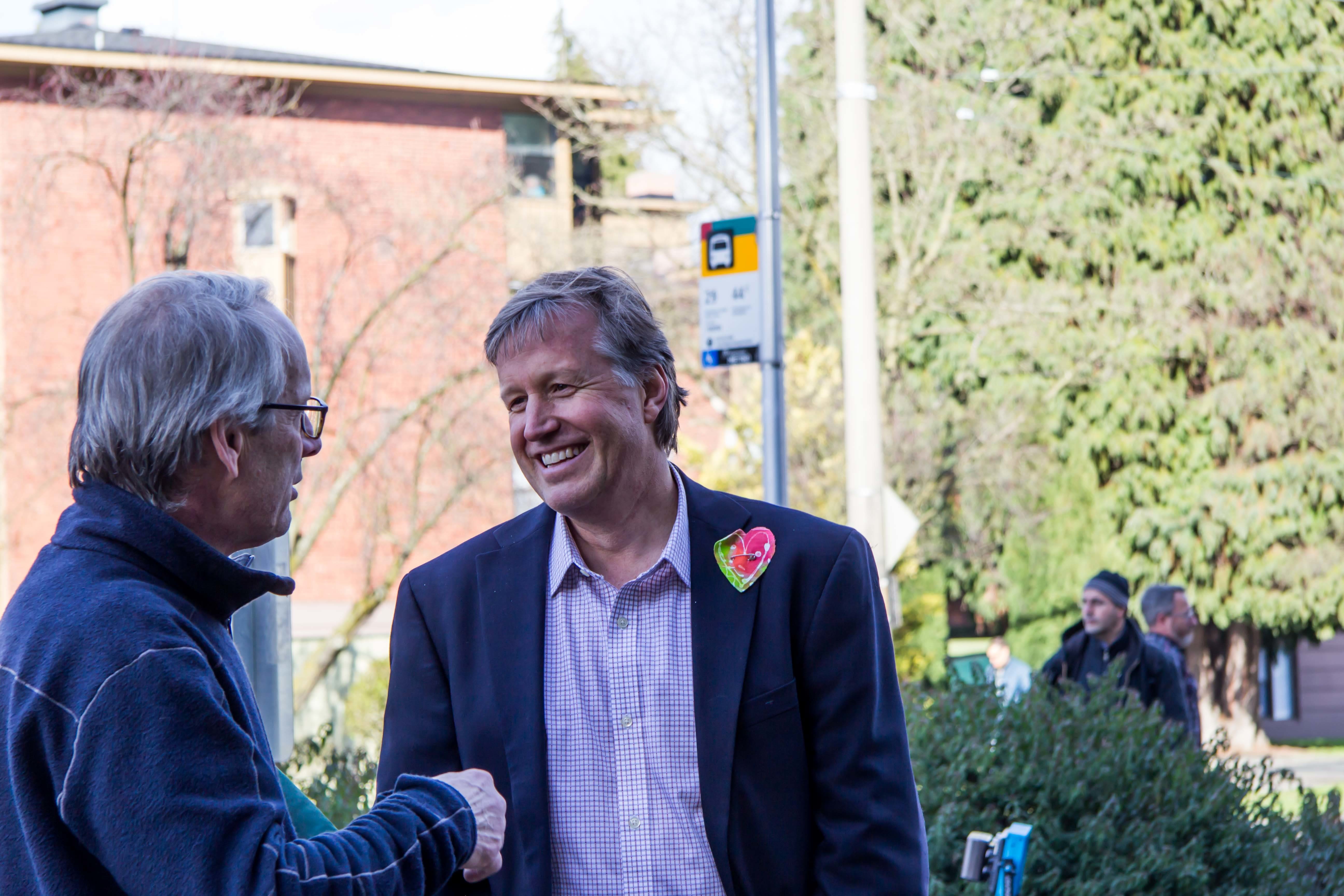City Hall
McGinn Sends Cost Overrun Limits to Council

THIS POST HAS BEEN UPDATED SEVERAL TIMES.
Mayor Mike McGinn sent a proposed agreement between the city and the state on the deep-bore tunnel to the city council today that says the project will not move forward unless the state legislature removes a provision in state law putting Seattle taxpayers on the hook for cost overruns.
"As Seattle mayor, I will not support an agreement that puts us on the hook for cost overruns," McGinn said at a press briefing this morning. "We want to make an agreement [with the council] that says the agreement does not take effect until the state takes the responsibility for cost overruns, and that says that the state is responsible for all project funding, including cost overruns."
However, the fact that McGinn did not talk to council members or negotiate any aspect of the language in advance raises questions about whether he really wants the council to sign off on his version of the agreement, or whether he's making another rhetorical gambit against a tunnel he has never supported.
Council members face three options: The first is that they pass McGinn's language and deal with the possibility that the state legislature will not change the language. The legislature declined to delete the cost overruns provision last year, and viaduct oversight committee chair Sally Bagshaw says the chairs of the state House and Senate transportation committees have told her they will not revisit the overruns issue this year. If McGinn's proposal passed and the legislature didn't change the language, it would delay viaduct construction.
Council president Richard Conlin was quick to throw water on that possibility, saying "It doesn't seem to me that [today's proposal] is anything different from anything else he's ever done. ... I haven't talked to him about it, but I don't see anything new in here."
Bagshaw, meanwhile, called the proposal a "delaying tactic.. ... He's saying he wants to delay the project two years. ... It's not worth the risk.
However, council member Mike O'Brien, an opponent of the deep-bore tunnel, sounded somewhat more optimistic about the proposal's prospects.
"Whenever McGinn proposes anything, [the council] opposes it," O'Brien says. "As we have time to discuss it over the coming weeks, I think we'll actually look at the details." O'Brien says that if the measure doesn't pass, he'll propose an amendment to the agreement that would have a similar impact.
The second alternative is that the council takes McGinn's proposed language out of the agreement. At that point, McGinn has said, he would veto it, and the council would need six votes (likely, as an earlier agreement passed the council unanimously) to override his veto and sign the agreement.
The third alternative is that the council would come up with new compromise language---some sort of middle ground between McGinn's language and the council's current position. Because council staff were just getting their first look at the language this morning, they couldn't provide any more details about what a compromise would look like. Conlin said the council was discussing technical changes that "might strengthen the agreement," but said he couldn't specify what those changes would be.
Perhaps recognizing the likelihood of an impasse with the council, McGinn returned repeatedly to the idea that he was "only asking the question---who's going to pay for cost overruns?
"I guess I'm new to politics---I've only been in office for six months ... All the powerful interests want the tunnel. All I'm asking is, if there are cost overruns, who will pay? And some say that's a political ploy. I think the citizens would like to know who will pay."
Asked why he hadn't spoken to the council about his proposal---in particular, Conlin, with whom McGinn has clashed over the tunnel and other issues---McGinn said it came down to a difference of "style": He likes to discuss issues in public, whereas Conlin and other supporters try to keep discussions "behind closed doors."
"I think [Conlin] does reognize that he has to have a public discussion, which he declined to do," McGinn said. "In discussing it with council member Conlin, at least, his position has been we shouldn't raise the issue publicly, that talking about overruns in fact causes cost overruns."
In fact, Conlin has talked publicly, and repeatedly, about his position on cost overruns, including a lengthy interview with the Seattle Times' Emily Heffter this weekend.
Asked about McGinn's remarks, Conlin said he hadn't discussed the overruns issue with the mayor. "I'm not sure what he's talking about, and I don't think he and I have ever had a conversation about this," Conlin said. "It seems like we have public meetings every week where we talk about the viaduct process and the agreements the council is negotiating."
In a text message, viaduct oversight committee member Sally Clark said, "I think it's great that the mayor and his team have worked hard on the draft agreements. He knows the [state law] is unenforceable but it helps his long-standing opposition to the project. I'm just happy he recognizes the agreements are moving forward."
Filed under
Share
Show Comments




